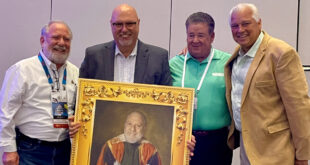
AFSA Involvement on NFPA Technical Committees
Commitment to Codes and Standards
The National Fire Protection Association (NFPA) is, among other things, the leading authority on all fire codes and standards. These codes and standards are kept up to date by NFPA Technical Committees (TCs), which serve as the principal bodies responsible for the development and revision of NFPA codes and standards. Code cycles range from once every three years to once every five years, with the standards that experience more change on a shorter cycle. Committees usually meet twice per code cycle.
Not just anyone can be a member of a TC; appointment is based on technical expertise, professional standing, and commitment to public safety. If a member of the American Fire Sprinkler Association (AFSA) is interested in being appointed to an NFPA TC, he or she should submit his or her information to the AFSA’s NFPA Representative Review Committee by contacting Roland Huggins, P.E., AFSA’s vice president of engineering and technical services. The committee will then take them into consideration for a position. “Any member who is interested in participating should submit their names to me,” says Huggins. “Although it’s not a requirement, it’s highly desirable that they be a NICET III or above, or a Professional Engineer (P.E.).”
There are other ways for the public to become involved in the process without becoming a representative. If you have a specific change you would like to see made to the code, you can easily make your voice heard by going to NFPA directly. Anyone can submit a proposed change, also known as a Public Input, and the committee itself will initiate changes. All changes are published in a First Draft report. Anyone can submit a proposed refinement to the First Draft report. The committee makes further refinements, and then these changes are published into a Second Draft report. Additional changes can be made by submitting a Notice of Intent to Make a Motion (NITMAM) and if accepted as a certified amending motion, presenting the change at the annual NFPA technical session. If there are no amending motions filed, a standard is adopted as drafted by the committee. Visit nfpa.org/codes-and-standards, select the code you are interested in changing, and you will see whether or not that code is open for public input. If it is, simply sign into your NFPA account (or create an account) and submit your suggested changes. However, members are often a big part of changes made to codes and standards through AFSA’s informal interpretations. When AFSA receives enough requests for interpretation on a certain code or standard, that is taken into account at the next committee meeting. While this will certainly influence changes, there is no substitute for speaking up and letting NFPA know what changes you want made. “Comments directly from people in the field, from the contractors, carry a lot of weight,” says Huggins. “We represent contractors, but we are just one voice, and when multiple voices from the industry make themselves heard, the potential for changing the standard goes up greatly.”
A large number of AFSA representatives have been on TCs for many years. John Denhardt, Strickland Fire Protection, Forestville, Maryland, has served on the NFPA 13, Standard for the Installation of Sprinkler Systems, Sprinkler System Discharge Criteria committee for the past 10 years, and he agrees that it is a process full of continual change, and one that requires balance. “The committee has many different points of view – insurance companies, sprinkler companies, AHJs [Authorities Having Jurisdiction], fire marshals – everyone has a motive,” says Denhardt. “But we try to keep a check-and-balance system, and come up with a consensus document that best represents the industry. So the standard is constantly evolving.”
TC representatives are volunteers, and the work that each representative puts into their committee is greatly appreciated by everyone at AFSA. “We know how busy everyone is,” says Huggins. “The fact that they take time out of their busy schedules to serve on these committees and help to advance the industry is admirable, and we very much appreciate their time, effort and expertise.”
Anyone interested in getting more involved with the development of NFPA codes and standards is very much encouraged to do so! Visit nfpa.org or contact Roland Huggins via email at rhuggins@firesprinkler.org.



 Sprinkler Age A Publication of the American Fire Sprinkler Association
Sprinkler Age A Publication of the American Fire Sprinkler Association
